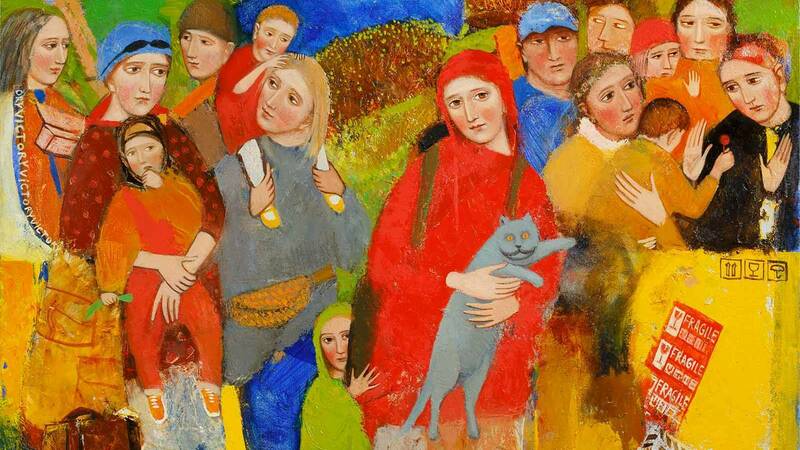
The (un)Known Soldier
By Abigail Lewis
After almost a decade of war and occupation, nearly every Ukrainian has experienced separation in some form; separation from their children, their loved ones, friends, their neighbors, or others they know. The two poems featured in this exhibition, “A guy I know volunteered…” by Serhiy Zhadan and “To my daughter” by Pavlo Vyshebaba, contend with the reality of a near universal experience of separation as a quintessential experience of war. Both poems are written to/about someone intimately close but, simultaneously, symbolically abstract. Both poems could be written by anyone from the front and anyone processing the experiences of war separation. In this way, the poems echo the memorial iconography of the Unknown Soldier after the First World War. In the aftermath of a war in which everyone lost someone, when most families experienced loss, the Unknown Soldier became a symbol for all soldiers who lost their lives. The singular unknown body entombed in these memorials, built in combatant nations in the aftermath of the war and treated with the utmost reverence, could be anyone and any family could be mourning their loved ones. Similarly, these poems dig into the painful reality that separation has become a common experience of war for many Ukrainian families. The narrator of Vyshebaba’s poem could be any father separated from his daughter and desiring to shield her from the reality of war. The acquaintance who volunteered could be any Ukrainian who came forward to serve in the nation’s defense.
Both Zhadan and Vyshebaba are activists, writers, and musicians from the Donbas region. Serhiy Zhadan is an internationally acclaimed novelist and poet as well as the frontman for the band Zhadan and the Dogs. Zhadan was active in the 2014 Kharkiv protests and was badly beaten during the protests. Since 2017, he has aided communities in the Donbas region and advocated for peace through his charitable foundation. As exemplified by his “A guy I know volunteered ...” Zhadan’s recent poetry in reaction to the full-scale war in 2022, has focused on symbols of types of people all impacted by war: the tattoo artist, the protestant missionary, the local drunk, the “bro,” and others. Moreover, his poetry, to quote translators Amelia Glaser and Yuliya Ilchuk writing for the anthology Words for War, is about “what war means, and how individuals living through war or peace, leave their marks on the world.” Vyshebaba co-founded and fronts One Planet Orchestra and a United Nations Development Programme envoy for tolerance in Ukraine. He was active in the Revolution of Dignity in 2013-2014 and worked in the press center of the National Resistance Headquarters. Since 2022, his poetry and music have aimed to connect the frontline with civilian life. For Vsyhebaba, poetry unites Ukrainians on the frontlines, at home and abroad.
View the Exhibits
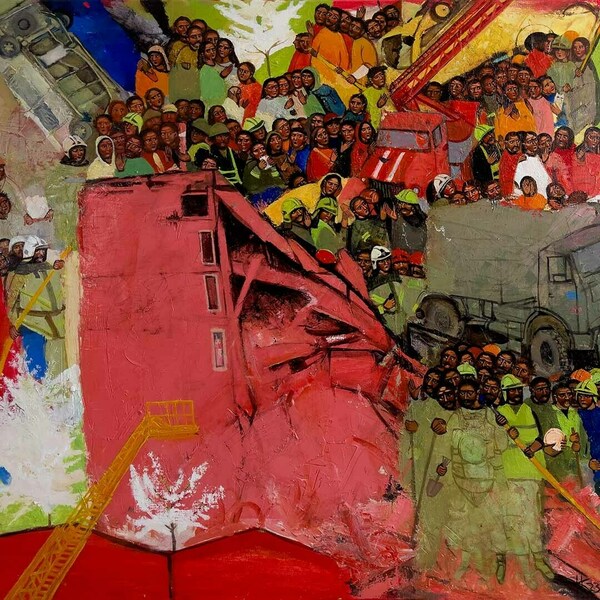
A guy I know volunteered...
Poem by Serhiy Zhadan, translated by Virlana Tkacz and Bob Holman.
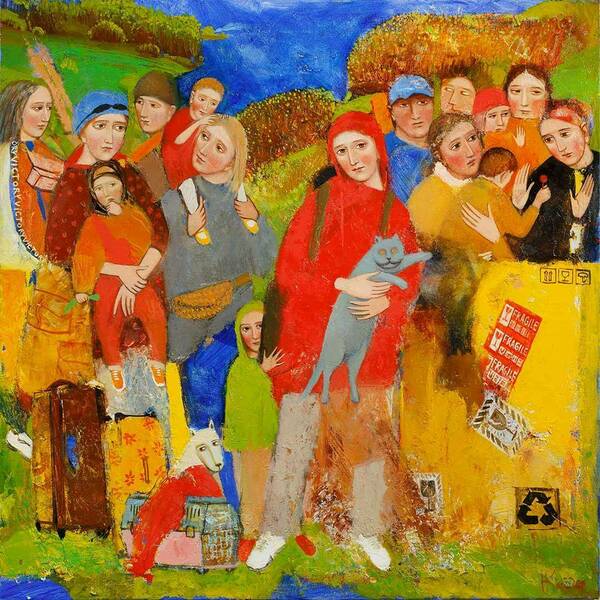
To my daughter
Poem by Pavlo Vyshebaba, translated by Anhelina Yurkiv.
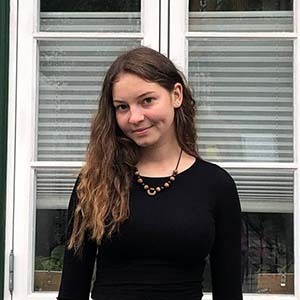
Halyna Tuziak is a third-year student at Ukrainian Catholic University studying ethics-politics-economics. During the spring semester of 2023, she studied abroad at the University of Notre Dame. Growing up in Lviv, Halyna dedicated most of her years before going to the university to Ukrainian and international folk dances and scouting. Majoring in political science, she believes politics is not only what is happening in a governing body but much more beyond it. As well as always being passionate about literature in all of its forms, this research project at the Nanovic Institute has been a great opportunity to explore how war influences writers and their works.
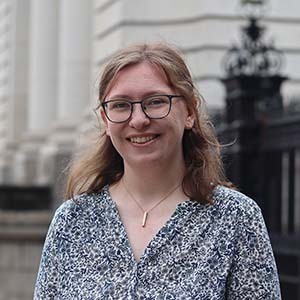
Abigail Keaney is a senior at the University of Notre Dame studying political science and global affairs with a concentration in Irish studies. On campus, she is involved with Notre Dame’s Student Union Board, the Notre Dame Journal of Political Science, and the Kellogg International Scholars Program, where she assists with research on the linguistic politics of Ireland. She is originally from St. Albans, England.
Header image: “Spring” by Kateryna Kosianenko, oil on canvas, 2022. Image used with permission from Kateryna Kosianenko.